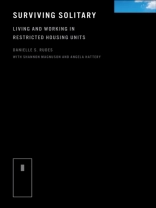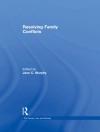Twenty to forty percent of the US prison population will spend time in restricted housing units—or solitary confinement. These separate units within prisons have enhanced security measures, and thousands of staff control and monitor the residents. Though commonly assumed to be punishment for only the most dangerous behaviors, in reality, these units may also be used in response to minor infractions. In Surviving Solitary, Danielle S. Rudes offers an unprecedented look inside RHUs—and a resounding call to more vigorously confront the intentions and realities of these structures. As the narratives unfold we witness the slow and systematic damage the RHUs inflict upon those living and working inside, through increased risk, arbitrary rules, and strained or absent social interactions. Rudes makes the case that we must prioritize improvement over harm. Residents uniformly call for more humane and dignified treatment. Staff yearn for more expansive control. But, as Rudes shows, there also remains fierce resilience among residents and staff and across the communities they forge—and a perpetual hope that they may have a different future.
关于作者
Danielle S. Rudes is a Professor in the Department of Criminal Justice & Criminology at Sam Houston State University and the Deputy Director of the Center for Advancing Correctional Excellence.She was formerly an Associate Professor of Criminology, Law and Society at George Mason University.












